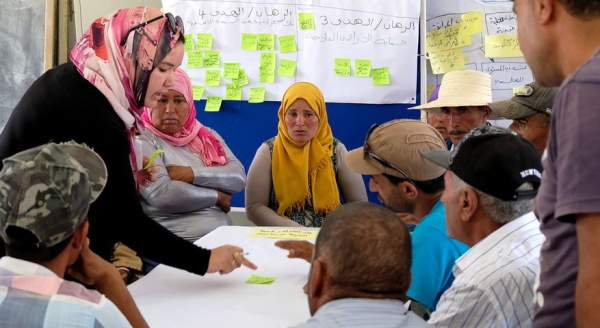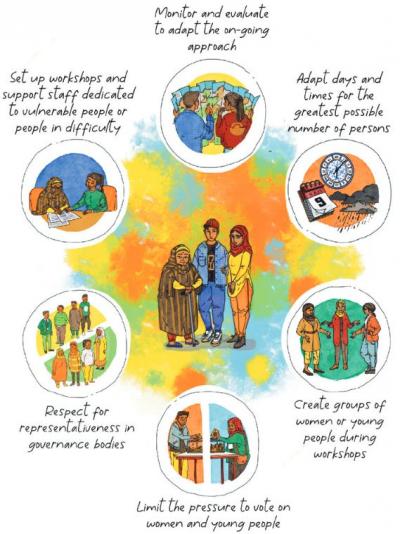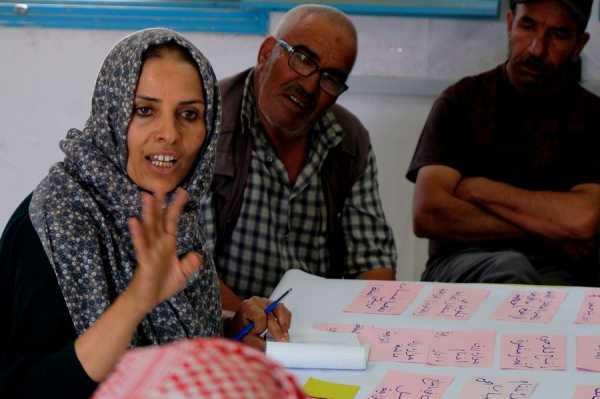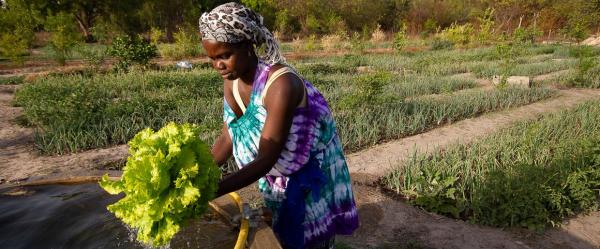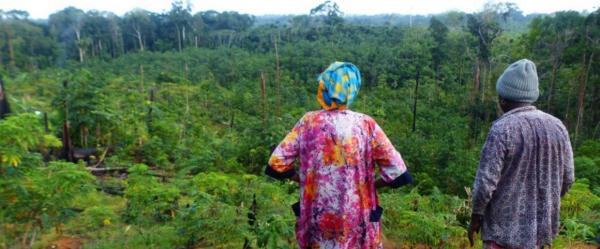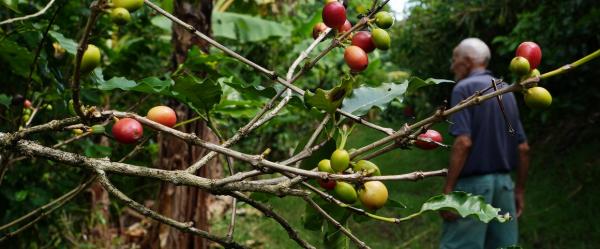Science at work 25 February 2026
- Home
- CIRAD news
- News
- Including women and young people in decisions
Including women and young people in decisions about the future of their territory
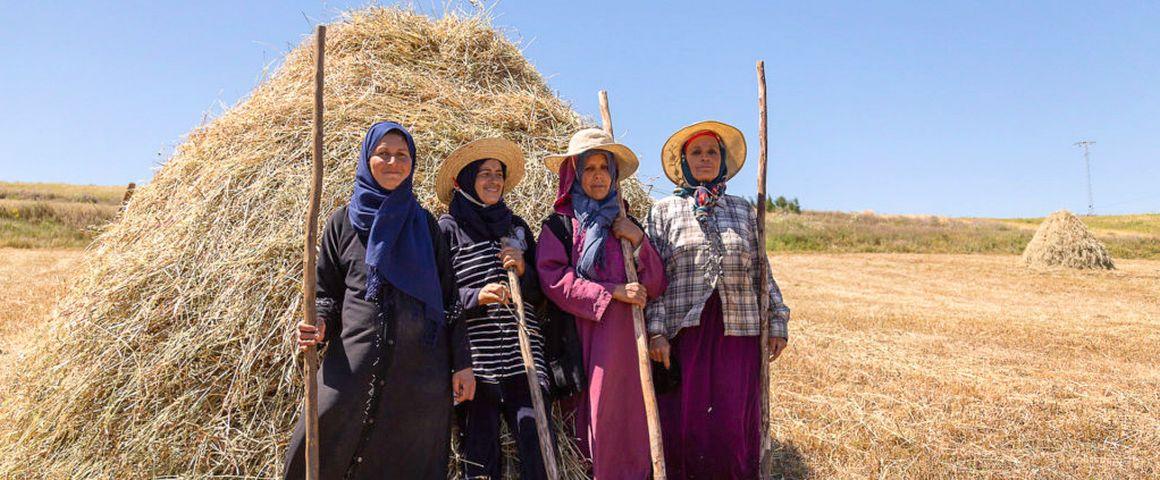
Women farmers in the Bizerte region, a vulnerable rural area in Tunisia © PACTE
It was young people in rural areas who started the revolutions of 2011 by protesting against poverty, unemployment and social inequalities. Ten years on, those inequalities remain, and young people still have few prospects. Many of them are reluctant to involve themselves in developing their local area, either because they are planning to move away, or because they cannot see any future there.
However, by working to include certain groups, particularly women and young people, the PACTE** project (Climate Change Adaptation Programme for Rural Territories in Tunisia) has been helping to change matters over the past four years. CIRAD has provided its expertise in terms of participatory processes.
Women and young people are often excluded from public and political life
The project's scientific team felt it was vital to adopt an inclusive approach, because women and young people are largely under-represented in political and public and decision making in Tunisia. This is due to a combination of factors. Sociocultural traditions linked to the country's patriarchal society often prove stronger than relatively progressive, inclusive legislative, regulatory and institutional frameworks.
On average, women spend eight times more time on unpaid domestic work than men (Ministry of Women's Affairs, Tunisia, 2006). As a result, they generally have very limited financial independence and are less available than men to participate in public and political life.
Traditional male power may also be a result of the way in which some development programmes were implemented in the past: only the "head of the household" was consulted. This aspect has been highlighted by several observers, who have reported hearing comments such as "There's no point in my wife participating, because I'm here".
During our diagnosis, we observed that women did not mention the same issues as men. We decided to distinguish between women's votes and men's votes, to take account of the priorities of everyone involved in subsequent work.
Levers to be more inclusive and empower people
In the most rural parts of Tunisia*, 4000 participants have been meeting at a series of workshops since 2018, to make shared decisions about the future of their local area and about how to adapt to climate change. They come from all walks of life: the general public, farmers, the authorities, civil society, elected representatives and the private sector.
The PACTE programme has worked with rural development players to build, monitor and assess an approach aimed at including various population groups.
Observations of the workshops highlighted various types of exclusive practices, enabling the implementation of several mobilization and facilitation drives to engage women and young people and take account of power relations.
- Tailoring days and times to when most people are available
In some territories, it is particularly difficult to encourage women and young people to come to workshops or to express themselves. In Kairouan, for instance, workshop leaders had to ask men to fetch women, and postponed the start of the workshops so that they could take part. In Bizerte, some women could not go to the workshops because they were working in the fields. Extra workshops were therefore organized so that they could continue to be involved.
- Separating women's votes and men's votes
When electing representatives to the territorial committee, the ballot box was installed in an out-of-the-way place or shielded from view, to avoid any form of pressure on women's votes.
- Supporting illiterate participants
Young people and women who cannot read or write may be easily influenced by those who can. Giving them outside help enables them to make themselves heard.
These steps only partly reduce the risk of people being influenced, as they do not have much effect within households. However, they do allow women and young people to express themselves in a context in which they rarely have the chance to do so. Their smiles and shining eyes after they have voted are living proof of that.
- Separating female and male participants to ensure free speech
During the workshops, several steps were taken to allow women and young people to express themselves. In Siliana and Sidi Bouzid, for instance, men and women were separated for the part of the workshop during which participants were asked to propose actions, with the women's groups being led by women.
- Making it easier for women to speak in public and appointing them to speak for their territory
Setting up territorial committees is intended to produce integrated land use plans, based on the proposals put forward by local people. Some committees have a compulsory 50:50 gender balance. However, it has not always been easy to find women prepared to sit on the committees. In Ain El Jouza, the facilitator identified a woman who spoke well in public, but she was reluctant to serve as a representative, on the grounds that she was illiterate. However, with the facilitator's encouragement, once she was convinced that there was very little written material involved, she agreed to stand. She now takes part in territorial committee meetings.
Preparatory workshops were also organized prior to the first territorial committee meetings, to encourage local representatives to speak in front of other more experienced groups (elected representatives, private companies and civil society).
Change will be a long-term undertaking
Some women and young people have sponsored their own dedicated projects, housewives have been actively and regularly involved in workshops, and some have agreed to act as representatives of their peers on the territorial committee. However, there is still room for improvement. Empowerment is a multi-dimensional process that requires dedicated time and spaces. Stakeholders must have the necessary time to grasp the socio-
cultural, economic and political mechanisms of exclusion, and the manner in which the latter influences relations of power.
* Bizerte, Kairouan, Le Kef, Sidi Bouzid and Siliana** PACTE is a six-year programme (2018-2023) coordinated by the Tunisian Ministry of Agriculture, Water Resources and Fisheries and funded by AFD.

























